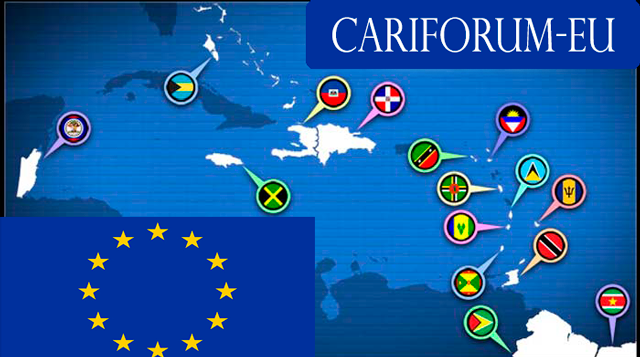Amidst much fanfare the Economic Partnership Agreement (EPA) between CARIFORUM (CARICOM and the Dominican Republic) and the European Union (EU) was promulgated in 2008. Following BREXIT, another EPA was signed with CARIFORUM and the United Kingdom (UK) in 2021. Though not the panacea for export trade between the Caribbean and Europe, these agreements offered much potential to Caribbean businesses to internationalise their goods and services, and for Caribbean economies to generate much-needed foreign exchange. Fifteen years later, some assessment is needed on the performance of the EPAs and what, if any, remedial action is needed going forward.
The EPA aims to facilitate trade in goods and services, enhance investment flows, and promote sustainable development in the region. Notably, the agreements include provisions and concessions not only for goods but also for the services sectors, which are crucial for the Caribbean region where services make up more than 80 per cent of the GDP in some countries.
Under these agreements, the EU and the UK have opened 94 per cent of their services sectors, going beyond commitments under the WTO’s General Agreement for Trade in Services (GATS). Both agreements offer improved market access for Caribbean businesses and professionals in various service areas such as cross-border trade, investment, consumption abroad, and temporary movement of individuals involved in business services, communications, construction, distribution, environmental services, financial services, transportation, tourism, as well as cultural and entertainment services.
One of the significant advantages of both agreements is the 100 per cent duty-free and quota access they grant for CARIFORUM exports to the EU and UK markets, respectively. These preferential access provisions eliminate or reduce tariffs, making Caribbean products more competitive in these markets.
Furthermore, the agreements promote the diversification of Caribbean exports, encouraging firms to explore new market opportunities and expand their product range. The EPAs also create a favourable environment for foreign direct investment by providing a transparent and predictable regulatory framework. This opens doors for EU investors to explore business opportunities in the Caribbean, leading to technology transfer, increased employment, and overall economic growth.
Despite the great opportunities and potential the agreements offer, Caribbean firms have not fully leveraged them. According to the European Commission evaluation report, trade between CARIFORUM and the EU has remained relatively stagnant. In 2018, CARIFORUM exports to the EU amounted to €3.9 billion, while EU exports to CARIFORUM were €5.1 billion, which is roughly the same as the total trade between the two regions in 2008.
The growth rate of CARIFORUM exports to the EU has been modest at two per cent annually after the implementation of the EPA, while EU exports to CARIFORUM have grown at a rate of four per cent. The trends recorded a shift away from mineral fuels and towards food and manufactured goods. Juices from Jamaica and organic produce from the Dominican Republic, as well as niche sectors like medical devices and electronics, are emerging export opportunities in addition to traditional products.
CARIFORUM is heavily reliant on service exports, with travel services dominating, as well as emerging industries such as business process outsourcing and cultural services. Data limitations make determining trends in services exports to the EU difficult. However, between 2010 and 2018, service imports from the EU nearly doubled, while the EU’s share of CARIFORUM services trade remained the same.
The report highlights that the EU’s significance as a trading partner for CARIFORUM has been declining. In 2007, 18 per cent of CARIFORUM imports came from the EU, but by 2018, this figure had dropped to 12 per cent. This indicates a lack of commercial interest from the EU in the Caribbean and limited awareness of the EPA among European businesses. In contrast, CARIFORUM imports from countries like the US and China grew at a faster pace during the same period. In 2018, CARIFORUM imports from the US were nearly four times higher than imports from the EU due to factors such as logistics efficiency, ease of doing business, geographical proximity, language, and transport costs. The report also acknowledges the rapid growth of imports from China.
Some Caribbean countries including Dominican Republic, Belize, and Antigua & Barbuda, have realised export growth in EU markets. Product diversification, EU trade agreement market access advantages, and competitiveness strategies in key sectors helped these countries increase EU exports. The CARIFORUM-UK EPA’s impact on Caribbean exports is still being assessed.
Both EPAs present significant opportunities for the region’s private sector to expand their reach, diversify their markets, and boost economic growth. By leveraging the duty-free access, trade facilitation measures, and investment provisions of the agreements, firms can enhance their competitiveness and benefit from increased trade and investment flows.
The performance of the agreements thus far has not been stellar. Improvements in the ecosystem are clearly needed to ensure firms can build capacity to leverage the opportunities available. Some of these areas include, business support to build capacity, an enabling regulatory regime, a skilled and productive labour force, and access to financing to facilitate trade.
Micro, small and medium enterprises in the Caribbean face numerous challenges that impede their growth. To access export markets and internationalise their goods and services warrant significant improvements in the business ecosystem for these firms to advance to the next level, Access to finance and affordable capital for investment, expansion, and innovation; adequate infrastructure, such as transportation and telecommunications; efficient business operations and connectivity; support to navigate complex regulatory frameworks, including trade regulations and intellectual property rights, are but a few of the needed improvements for the sector. Available market intelligence to identify and capitalise on export opportunities, capacity-building and skills development are essential for MSMEs to leverage the EPAs.
The question is, is there potential from the EPAs for firms to monetise considering the growth of markets in the south? We await the outcome of the vote in this matter.
The Small Business Association of Barbados (SBA) is the island’s non-profit representative body for micro, small and medium enterprises (MSMEs). Connect with the SBA: https://www.sba.bb/sba/ ]]>




